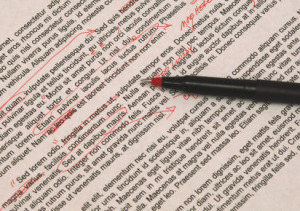 Dear Beta-Reader:
Dear Beta-Reader:
Okay, I’ve written my magnum opus. I’ve elicited friends, family and beta-readers to read it, and I’m waiting on pins and needles for the feedback. I’m sitting with fingers and toes crossed, holding my breath, checking e-mail every five seconds, hoping against hope that the readers will like it. Then I get the first response: “I liked it. It’s good.”
Helpful? Yeah, no. Of course I would love to have my first readers ooh and ahh over the book, but this very non-specific comment is not constructive. Nice as it is, it tells me nothing.
The purpose of beta-readers is not to stroke my writer’s ego. That job belongs to my mother. The purpose of beta-readers is to find all the shortcomings in my writing before I push the publish button. They need to take that puppy out for a rigorous shake-down cruise and find every bug, every glitch, every typo, misplaced comma, and inconsistent tense. It’s painful to get feedback with a laundry list of problems, but would I rather see that list now, in a private e-mail before publication, or see it pasted up in a lambasting Amazon review for all the world to read? Continue reading “Open Letter to Beta-Readers”

